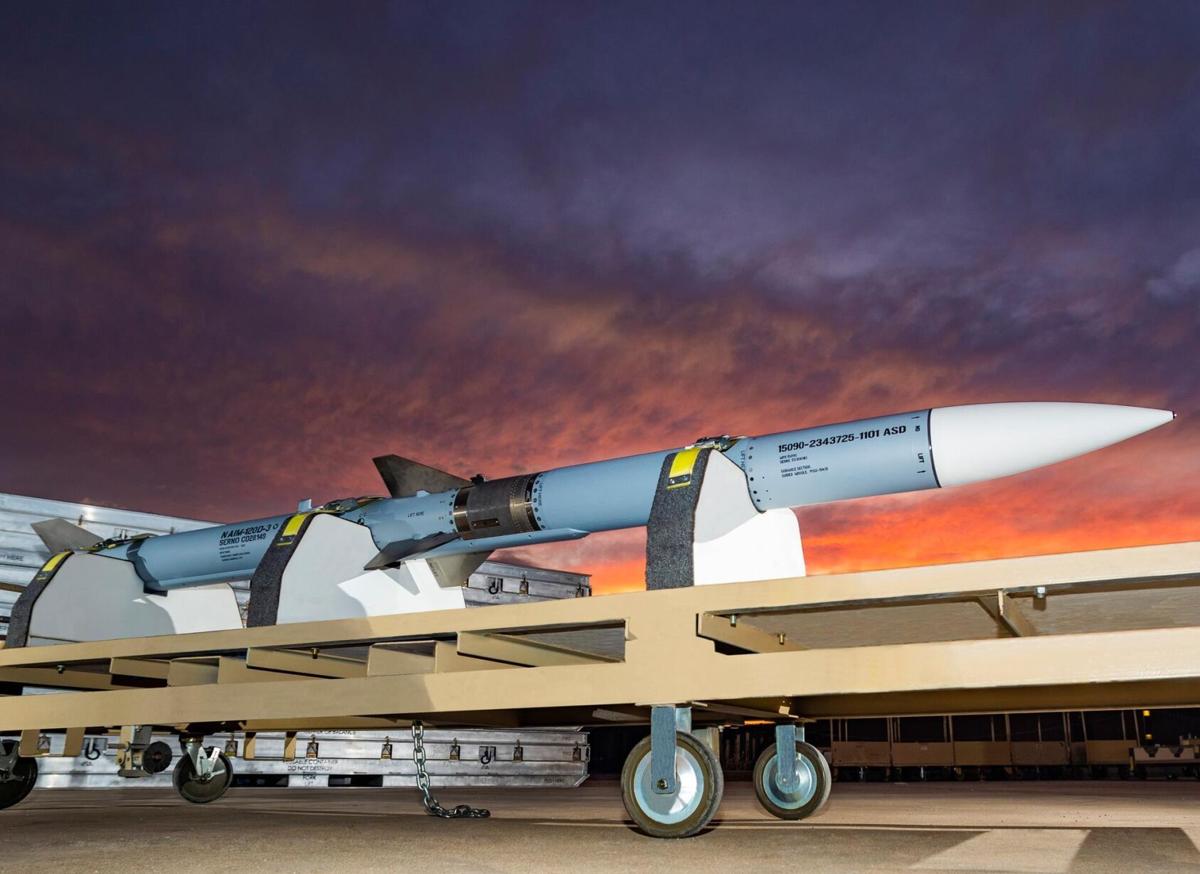Tucson-based Raytheon Missiles & Defense was awarded a three-year, $972 million contract to produce an upgraded version of a widely deployed air-combat missile for the U.S. Air Force and Navy and 19 allied countries.
The contract for the Advanced Medium Range Air-to-Air Missile (AMRAAM) is the first for a full production lot of the missile developed under an upgrade program known as “Form, Fit, Function Refresh,” or F3R, which updates both the missile’s hardware and software, Raytheon said.
Work under the contract, which includes related missile hardware and services, will be performed in Tucson, according to a Pentagon contract notice.
“This contract underscores the importance of AMRAAM in the warfighters’ arsenal,” Paul Ferraro, president of Air Power for Raytheon Missiles & Defense, said in a news release. “These missiles, developed under the Form, Fit, Function Refresh, have the most advanced hardware and software needed to compete with peer adversaries.”
The upgraded AMRAAMs still need to undergo further testing before they are declared initially operational for deployment.
The Air Force had the first live-fire test of the production version of an AMRAAM AIM-120D3 version including the F3R upgrade in June, with an F-15E Strike Eagle engaging a drone F-16 target.
Two additional live-fire tests are planned for this year, said Raytheon, the Tucson region’s biggest employer with more than 13,000 employees at multiple plant sites.
In service since 1991, the AMRAAM has undergone incremental upgrades and is one of the most widely deployed air-combat missiles in the world, in use by 40 nations.
The all-weather AMRAAM uses radar and GPS-enhanced guidance to hit targets beyond visual range — up to a reported range of about 35 to 80 miles, depending on the version. It has been test-fired more than 5,000 times and credited with air-combat “kills” in conflicts over Iraq, Bosnia, Kosovo, India and Syria.
The latest upgrade combines an earlier software update program with upgrades to multiple circuit boards and other hardware in the AMRAAM’s guidance section, Raytheon said.
Besides the U.S., 42% of the contract value involves production of AMRAAMs under the Foreign Military Sales program for Australia, Bahrain, Bulgaria, Canada, Denmark, Finland, Hungary, Italy, Japan, Korea, Netherlands, Norway, Qatar, Saudi Arabia, Singapore, Slovakia, Spain, Switzerland and the United Kingdom, the Pentagon said.
The contract doesn’t specify the number of missiles to be produced. The cost of an AMRAAM varies based on version and the number produced and typically includes support equipment and spare parts.
The procurement cost of each AMRAAM requested for fiscal 2023 was about $1.2 million for the Air Force and just under $1 million for the Navy version, according to Pentagon budget documents.




